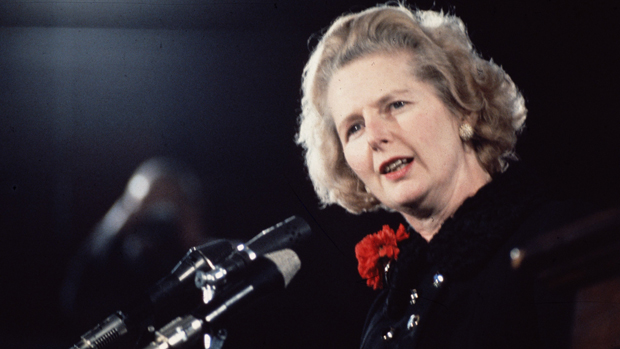Thatcher 'accepted' Yvonne Fletcher killer would go free
PM realised 1984 shooting at Libyan embassy demonstration would go unpunished, documents reveal

A free daily email with the biggest news stories of the day – and the best features from TheWeek.com
You are now subscribed
Your newsletter sign-up was successful
BRITAIN was given two warnings that a demonstration at the Libyan embassy in 1984 would turn violent, secret government documents reveal. But both warnings were ignored and policewoman Yvonne Fletcher was shot and killed less than 12 hours later.
The documents, released today by the National Archives, also reveal that Margaret Thatcher "accepted" that no-one would ever be charged over the 25-year-old officer's murder.
The first warning about the demonstration by Libyan dissidents at Tripoli's London embassy was given to the British ambassador to Libya, Oliver Miles, the Daily Telegraph reports. He was told the demonstration "might include violence" and the Libyan government "would not be responsible for the consequences" if the protest went ahead.
The Week
Escape your echo chamber. Get the facts behind the news, plus analysis from multiple perspectives.

Sign up for The Week's Free Newsletters
From our morning news briefing to a weekly Good News Newsletter, get the best of The Week delivered directly to your inbox.
From our morning news briefing to a weekly Good News Newsletter, get the best of The Week delivered directly to your inbox.
Later that day, two Libyan diplomats visited the Foreign Office in London and expressed their concern about the demonstration, the paper says. They too said that if it went ahead "they would not be answerable for the consequences".
Less than 12 hours later, on 17 April, 1984, Fletcher was fatally-wounded in the stomach by a burst of gunfire from within the Libyan embassy. Eleven dissidents opposed to Colonel Gaddafi were also injured in the shooting.
Police laid siege to the building for 11 days. But its occupants were eventually allowed to return to Libya with full diplomatic immunity because Thatcher was worried about the fate of 8,000 Britons in Libya and British diplomatic staff in Tripoli. Those repatriated included Abdulmagid Salah Ameri, the junior diplomat later accused of killing Fletcher.
The documents released today suggest Thatcher accepted that her government would "have to let a murderer go free", the Telegraph says. In a phone conversation with the then home secretary, Leon Brittan, it was agreed that "it was unlikely that adequate evidence could be secured, and that the culprit could be identified," the documents state.
A free daily email with the biggest news stories of the day – and the best features from TheWeek.com
The documents continue: "The Home Secretary asked whether repatriating the Libyan staff, including the perpetrator of the murder, could be defended. The PM thought it could, provided British staff [in Libya] were successfully repatriated too."
The Telegraph says there is "nothing in the files" to suggest the warnings of violence prompted any action from British authorities. There is no suggestion the officers sent to police the demonstration were warned or any extra precautions were put in place.
While Salah Ameri is believed to be dead, a second man, Salah Eddin Khalifa, was identified last year as Fletcher's killer. The question of whether the pro-Gaddafi student fired the fatal shot is the subject of an ongoing investigation by British police.